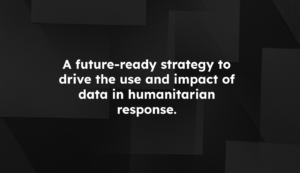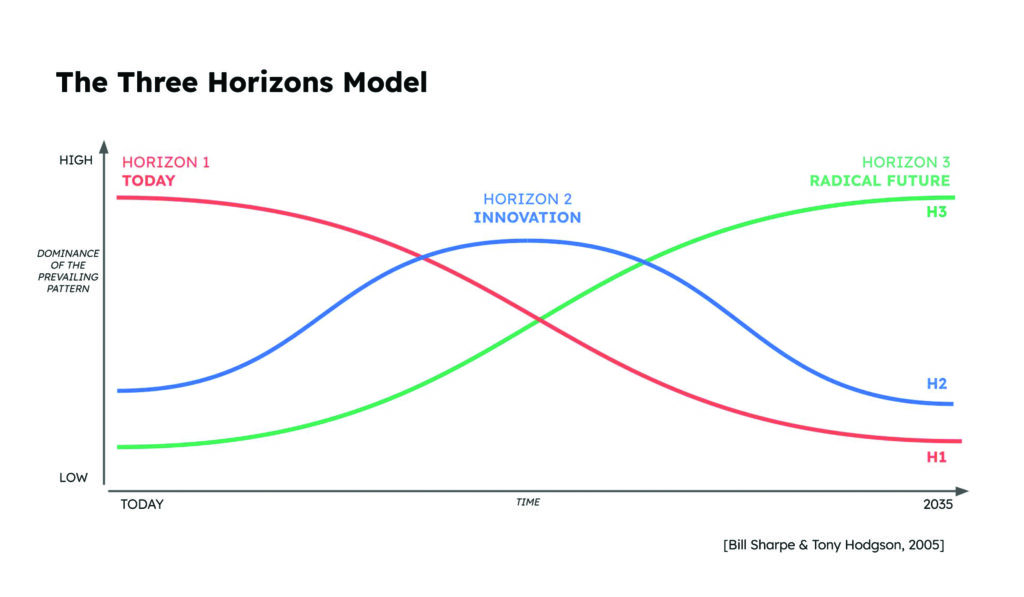Share
OCHA established the Centre for Humanitarian Data in The Hague in 2017 with the goal of increasing the use and impact of data in the humanitarian sector. Six years after its formation, the Centre’s work has become even more relevant and essential. Our strategy for the coming years builds on our progress with making data accessible and creates new opportunities for faster access to reliable data and insight about humanitarian crises.
Data is now firmly on the agenda of the United Nations with the creation in 2020 of the Secretary-General’s Data Strategy, which seeks to “unlock the data potential of the UN family to better support people and planet.” Our Common Agenda commits the organization to a UN 2.0 that prioritizes data, digital, innovation, foresight and behavioural science.
Similarly, demand for better data and analysis has grown in the humanitarian sector as it contends with unprecedented needs and insufficient funds. Humanitarianism is also facing a reckoning as calls for localization and decolonization require a radical reimagining of the sector. In this context, data is more powerful than ever, and the stakes have never been higher with over 350 million people in need of humanitarian assistance in 2023.

OCHA’s Strategic Plan 2023-2026 outlines six transformational priorities to address the challenges of this demanding and changing landscape. This includes, among other things, catalytic and innovative humanitarian financing and strategic analysis of risks and trends to help protect and save lives in complex crises. The plan sees data and analysis as a key enabler of OCHA’s ability to deliver on its priorities, and commits to creating a data-driven and analytical culture across the organization.
With this direction from OCHA, we worked with frog, a global design and strategy consultancy, to develop a future-ready strategy to inform our priorities over the coming years. The frog team helped us explore possible futures for data and humanitarianism in the next 10-15 years. This long-term thinking allowed us to make strategic choices that drive towards a future that is likely to include more humanitarian crises, more fragmentation among partners, more data, and less trust. Guided by ‘The Three Horizons’ foresight methodology, we were able to identify opportunities to deepen and expand our work, such as improving analytical accountability, producing more climate and risk-informed analysis, and telling human-centered stories about the impact of data. The Centre’s overall mission remains unchanged – we are committed to increasing the use and impact of data in humanitarian response. As we look forward, in addition to continuing our foundational work around data availability, we will expand our efforts further into insight, leveraging our capabilities and partnerships to ensure data is central to decision making in OCHA and the sector.
The Centre’s overall mission remains unchanged – we are committed to increasing the use and impact of data in humanitarian response. As we look forward, in addition to continuing our foundational work around data availability, we will expand our efforts further into insight, leveraging our capabilities and partnerships to ensure data is central to decision making in OCHA and the sector.
Our priorities include:
- Evolving the HDX platform to be more sophisticated in its processing of data at scale, and preferencing data quality over data quantity.
- Using data science, risk analysis and foresight to drive preemptive approaches and long-term thinking in humanitarian crises.
- Activating adoption of data responsibility guidance and introducing frameworks for analytical accountability across the sector.
- Increasing the confidence of humanitarians to engage with data and make effective use of analysis through learning programmes.
The Centre’s operations will continue to be organized around four workstreams: data services, data science, data responsibility and learning and practice. Our support is provided to OCHA staff and humanitarian partners, with a priority focus on locations with humanitarian response plans.
We are grateful to our partners and stakeholders for their continued support and collaboration. Please be in touch with questions or feedback at centrehumdata@un.org.